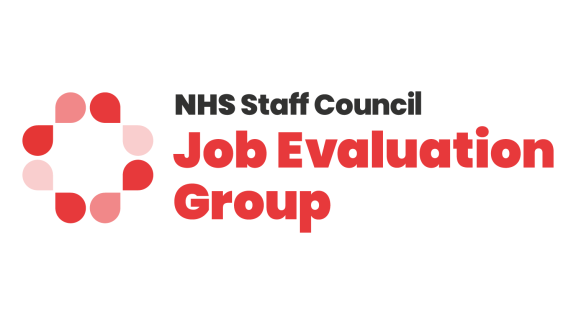Step by step to local evaluation

Most NHS jobs will match to a national profile, so will not need to be evaluated locally. There are some instances where employers will need to use local evaluation to job match. This step by step procedure will talk you through the process.
Local evaluation is much more time-consuming than job matching, so it is important to be sure that a local evaluation is necessary before starting the process.
Most NHS jobs will match to a national profile, so will not need to be evaluated locally. There are some instances where jobs will need to be evaluated, including:
- Those for which there isn't a national profile because they are unique or significantly different wherever they occur, for example senior managerial or administrative posts and jobs in specialist areas such as IT or public relations.
- Jobs where an attempt has been made to match them to one or more national profiles, but this has not proved possible, for example unusual and/or very specialist healthcare and non-healthcare roles.
Step by step procedure
1) Complete the job analysis questionnaire (JAQ)
The job holder completes the JAQ as far as possible, seeking assistance from their line manager, supervisor or colleagues. This document draft is shared with the job analysts in advance of a job analysis interview.
2) Job analysis interview
The job holder is interviewed by two trained job analysts, one representing management and one representing staff side. The aim of the interview is to check, complete, improve on and verify the draft JAQ by:
- Checking that the JAQ instructions have been correctly followed.
- Filling in information and examples where required questions have not been answered or have been answered inadequately.
- Checking closed question answers against the examples given and the statement of job duties.
3) Sign off
- The amended draft JAQ is checked by the line manager or supervisor and then signed off by the jobholder, line manager or supervisor and both job analysts.
- If there are any differences of view between the job holder and line manager over the information in the JAQ, this should be resolved, with the assistance of the job analysts and, if necessary, by reference to factual records, diaries or equivalent.
- Any more fundamental disagreements e.g. over the job duties or responsibilities, should be very rare and should be dealt with under existing local procedures including, if necessary, the grievance procedure.
4) Evaluation of JAQ
The agreed and signed-off JAQ is considered by a joint evaluation panel (typically three to five members) and either an evaluation template or computerised evaluation form completed. The panel must consider all of the job information to determine factor levels as described in chapter 5. This will involve:
- Validating the closed question answers against the examples and statement of job duties. This should normally be a straightforward, virtually automatic process.
- Analysing and evaluating the closed and open-ended information on those factors where automatic evaluation is not possible.
- Only where necessary, seeking further information from the job analysts and/or job holder, where the information is inadequate.
- At the extreme, this could involve sending a badly completed and/or analysed JAQ back to the job holder and job analysts to repeat steps two and three above.
- More commonly, it might involve asking the jobholder or line manager for a specific piece of information to resolve a query at the border between question categories or factor levels.
- Checking the provisional evaluation for consistency on both a factor by factor and total score basis, against both national profiles and other local evaluations.
- The evaluation panel must complete the required paperwork or forms thoroughly, bearing in mind that the evaluation report will be made available to the job holder in case of a query.
5) Consistency checking
- Local evaluations must be subject to consistency checking before any outcome is released to the job holder or their line manager.
- Should the consistency checking panel find any apparent anomalies or have any concerns about the evaluation, these should be referred back to the original panel for reconsideration.
- Only once the outcome has been agreed by the consistency checking panel can it be released.
- The job holder can be given the full evaluation report including an explanatory rationale.
Find out more about consistency checking in chapter 14 of the job evaluation handbook.
6) Request for review
If the jobholder is dissatisfied about the outcome of the local evaluation, they may request a review.
For more information about job evaluation, please see chapter 12 of the job evaluation handbook.



